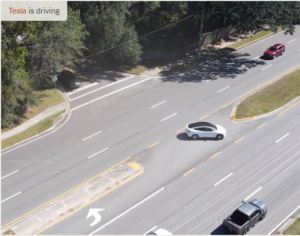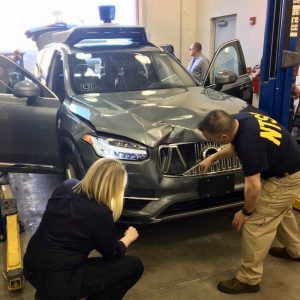A Glimpse into Tesla’s New “Full Self Driving” Technology
 This week the New York Times published a fascinating look at the latest iteration of Tesla’s automated driving technology, which the company calls “Full Self Driving.” Reporters and videographers spent a day riding with Tesla owner Chuck Cook, an airline pilot who lives in Jacksonville, Florida and has been granted early access to the new technology as a beta tester. What they found was, to my eye anyway, disturbing.
This week the New York Times published a fascinating look at the latest iteration of Tesla’s automated driving technology, which the company calls “Full Self Driving.” Reporters and videographers spent a day riding with Tesla owner Chuck Cook, an airline pilot who lives in Jacksonville, Florida and has been granted early access to the new technology as a beta tester. What they found was, to my eye anyway, disturbing.
Mr. Cook’s Tesla navigated a broad range of city streets, selecting a route to a destination, recognizing and reacting to other cars, seeing and understanding traffic lights, and even making unprotected left-hand turns—a routine situation that autonomous vehicles struggle to handle. But the car also behaved erratically at times, requiring Mr. Cook to take over and correct its course. In one instance it veered off the street and into a motel parking lot, almost hitting a parked car. In another, it tried to make a left turn onto a quiet street but then, fooled by shade and branches from an overhanging tree, aborted the turn and ended up heading into oncoming traffic on a divided street. These incidents occurred in a single day of testing.
It is worth considering the experience of the Times reporters in the broader context of autonomous vehicle development, something the article largely fails to do.

 In another
In another  NTSB’s Final Report on Pedestrian Fatality Involving an Uber AV Highlights Obvious Programming Missteps
NTSB’s Final Report on Pedestrian Fatality Involving an Uber AV Highlights Obvious Programming Missteps